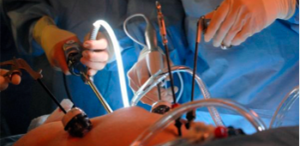Teenagers are always special patients at our International Center of Excellence for Obesity. Not only because their experience moves us deeply, but because it awakens in us a huge sense of responsibility and urgency.
Adolescence is difficult for anyone, but if to the emotional ups and downs, academic challenges and family or social situations you add an obesity problem, things can get terribly complicated on many different levels.
Data from the National Survey of Health and Nutrition in Mexico indicate that one in three teenagers aged 12 to 19 is overweight or obese. In the United States, obesity has more than doubled in children and quadrupled in adolescents in the past 30 years.
Obese teens run the same risks as obese adults: diabetes, heart disease, sleep apnea and joint problems, among many others. Being young does not exempt these kids from the serious health complications brought on by obesity.
For many teens, sticking to a diet and exercise plan is not enough. Frustration reaches its limit for both the young person and his or her family after they have tried on multiple occasions to adhere to a weight loss regime, only to fail and end up weighing more than before.
When it comes to adolescents, the option of surgery for obesity can be met with resistance by parents and relatives. This may be due to the unfounded belief (which still prevails to some extent) that surgery is a cop-out chosen by undisciplined people who cannot lose weight on their own, or, it may well stem from a legitimate concern about the risks that the surgery might present.
A study published in the prestigious Journal of the American Medical Association Pediatrics indicates that in terms of surgery for obesity, the risk factor for teenagers is not higher than for adults. It also stressed the importance of considering bariatric surgery as a viable treatment option to combat the alarming levels of obesity that currently exist among adolescents.
Although the criteria to perform surgery in a young person are the same as for an adult, there are many things that the surgeon and his or her team should consider. In every single case the patient and his family must be very well prepared for the surgery, recovery and changes that await the patient in his post surgery life. In order to have the best possible results parents need to go to a multidisciplinary medical team that can provide the medical, psychological, social and nutritional care that the adolescent needs to reach a healthy weight and reduce his or her risk of co-morbidities.
Like any surgical procedure, bariatric surgery is not entirely free of risks, therein lays the importance of choosing a comprehensive care unit with a highly trained team and with extensive experience. A team sensitive to juvenile obesity, that can evaluate each case carefully in order to expertly determine if the young person is a candidate for bariatric surgery, and if so, suggest the best type.
In a world in which young people are suffering from diseases that were only seen in adults in the past, such as type 2 diabetes, fatty liver, hypertension and cardiovascular disease; and before the brutal reality of having a generation of parents that might have a longer life expectancy than their children because of the global obesity epidemic, bariatric surgery has become a viable option for adolescents; provided it be executed under the best possible conditions and by certified experts.
Bariatric surgery is not a cure-all for obesity in teens and it does not replace the need for a healthy diet and regular physical activity; but it offers broad new treatment options and provides a world of new possibilities in which the limitations and risks of obesity may no longer be an issue for obese teens.
If there is a teenager in your life who might benefit from bariatric surgery, go to LIMARP. Remember, our team is at your service and we can help. For a free evaluation call LIMARP International Center of Excellence for Obesity at (664) 686-2542 or fill out a contact form at www.limarp.com


